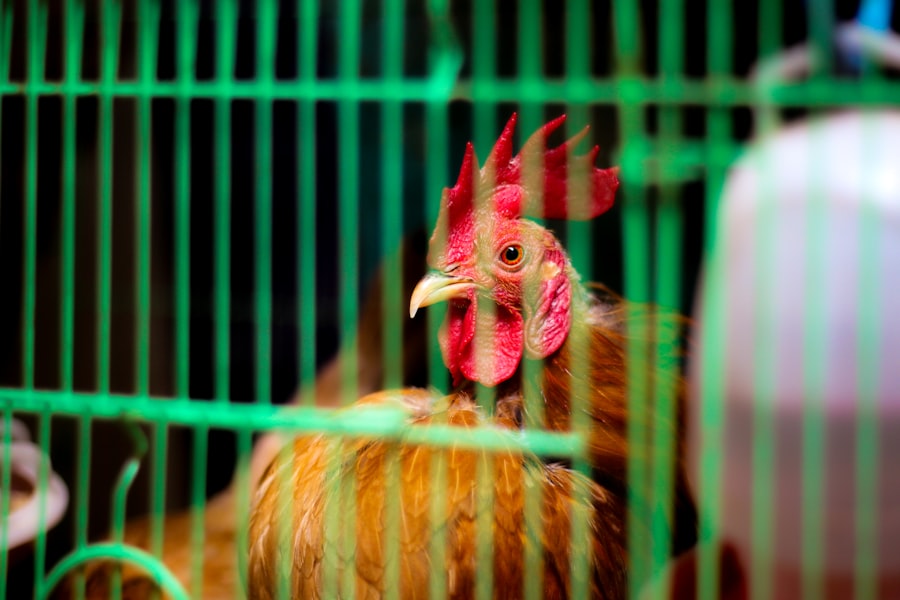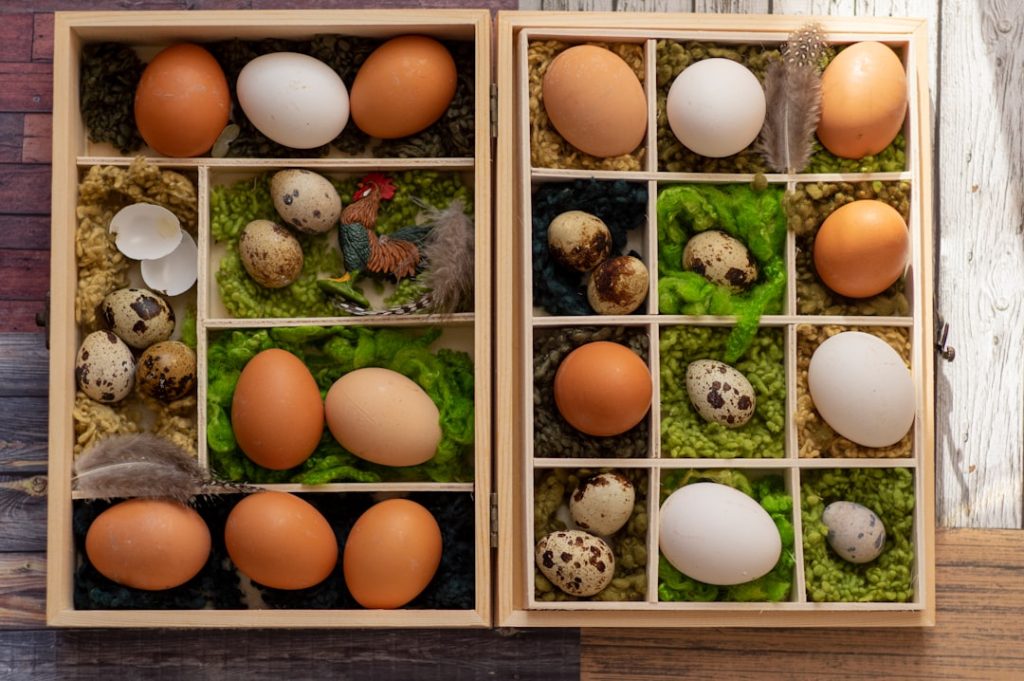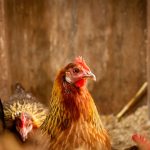When starting a backyard chicken coop, several initial costs must be considered. The primary expense is the coop itself, which can range from a few hundred dollars for a basic structure to several thousand for a larger, more elaborate setup. Purchasing chickens is another significant cost, with prices varying from $3 to $30 per bird, depending on breed and age.
Additional startup expenses include feeders, waterers, bedding, and maintenance tools. Fencing and security measures are crucial to protect chickens from predators, potentially requiring hardware cloth, electric fencing, and predator-proof latches. Climate considerations may necessitate heating or cooling equipment, while lighting may be needed during winter months.
The initial investment for a backyard chicken coop can be substantial. However, proper planning and budgeting can make it a cost-effective and rewarding endeavor in the long term. It is essential to account for all potential expenses, including ongoing costs such as feed and veterinary care, to ensure a successful and sustainable backyard chicken operation.
Table of Contents
- 1 Ongoing Expenses
- 2 Coop and Run Maintenance
- 3 Feed and Supplements
- 4 Veterinary Care
- 5 Predation and Security
- 6 Waste Disposal
- 7 FAQs
- 7.1 What are the initial costs of keeping chickens in the UK?
- 7.2 What are the ongoing costs of keeping chickens in the UK?
- 7.3 How much does chicken feed cost in the UK?
- 7.4 What are the potential veterinary costs for chickens in the UK?
- 7.5 Are there any legal or regulatory costs associated with keeping chickens in the UK?
- 7.6 What are the potential costs of predator-proofing a chicken coop in the UK?
Key Takeaways
- Initial costs for setting up a chicken coop and run include purchasing materials such as wood, wire, and roofing, as well as equipment like feeders and waterers.
- Ongoing expenses for keeping chickens include purchasing feed, bedding, and supplements, as well as regular maintenance and repairs for the coop and run.
- Coop and run maintenance involves regular cleaning, checking for wear and tear, and ensuring proper ventilation and insulation for the chickens’ comfort and health.
- Feed and supplements for chickens should be high-quality and appropriate for their age and purpose, with options for organic and non-GMO feeds available.
- Veterinary care for chickens may include vaccinations, deworming, and treatment for common ailments, as well as regular check-ups to monitor their overall health and well-being.
- Predation and security measures for protecting chickens from predators may include installing fencing, using predator-proof latches, and providing secure housing at night.
- Waste disposal from the coop and run should be managed properly to prevent odors and pests, with options for composting or disposal in a designated area.
Ongoing Expenses
Feed: A Significant Ongoing Expense
Chickens require a balanced diet of grains, protein, and minerals to stay healthy and lay eggs regularly. Depending on the size of your flock and the quality of feed you choose, this can cost anywhere from $15 to $30 per month.
Other Ongoing Expenses
Other ongoing expenses include bedding, which needs to be replaced regularly to maintain a clean and healthy coop environment. Veterinary care is another expense to consider, as chickens may require medical attention from time to time, including routine vaccinations, deworming, and treatment for common ailments.
Additional Expenses to Budget For
Additionally, you may need to budget for occasional repairs or upgrades to the coop and run, as well as any necessary pest control measures. By accounting for these ongoing expenses in your budget, you can ensure that your backyard chicken coop remains a sustainable and enjoyable hobby for years to come.
Coop and Run Maintenance
Maintaining a backyard chicken coop involves regular cleaning and upkeep to ensure a healthy and comfortable environment for your flock. This includes daily tasks such as collecting eggs, refilling feeders and waterers, and removing soiled bedding. Additionally, you will need to clean the coop and run on a weekly or bi-weekly basis to prevent the buildup of waste and bacteria.
This can involve removing old bedding, scrubbing surfaces with a mild disinfectant, and ensuring that ventilation is adequate to prevent moisture buildup. In addition to regular cleaning, coop and run maintenance also involves periodic repairs and upgrades. This can include replacing worn-out or damaged parts, reinforcing fencing and predator-proofing measures, and making adjustments to accommodate changes in your flock size or needs.
By staying on top of coop and run maintenance, you can ensure that your chickens have a safe and comfortable living space while minimizing the risk of disease and pest infestations. Maintaining a backyard chicken coop involves regular cleaning and upkeep to ensure a healthy environment for your flock. This includes daily tasks such as collecting eggs, refilling feeders and waterers, and removing soiled bedding.
Additionally, you will need to clean the coop and run on a weekly or bi-weekly basis to prevent the buildup of waste and bacteria. This can involve removing old bedding, scrubbing surfaces with a mild disinfectant, and ensuring that ventilation is adequate to prevent moisture buildup. By staying on top of coop and run maintenance, you can ensure that your chickens have a safe and comfortable living space while minimizing the risk of disease and pest infestations.
Feed and Supplements
Providing your backyard chickens with a balanced diet is essential for their health and productivity. This typically includes a commercial feed that is formulated specifically for laying hens, as well as access to fresh water at all times. In addition to their primary feed, chickens may also benefit from occasional supplements such as oyster shell or grit to support their digestive health and egg production.
Some chicken keepers also choose to offer treats such as fruits, vegetables, or mealworms as a source of enrichment and additional nutrients. When it comes to feeding your backyard chickens, it’s important to provide a balanced diet that meets their nutritional needs. This typically includes a commercial feed that is formulated specifically for laying hens, as well as access to fresh water at all times.
In addition to their primary feed, chickens may also benefit from occasional supplements such as oyster shell or grit to support their digestive health and egg production. By providing a balanced diet and occasional supplements, you can ensure that your backyard chickens remain healthy and productive.
Veterinary Care
While chickens are generally hardy animals, they can still require veterinary care from time to time. This can include routine vaccinations to protect against common diseases such as Marek’s disease or Newcastle disease, as well as deworming treatments to prevent parasitic infestations. Additionally, chickens may require medical attention for common ailments such as respiratory infections or mites.
It’s important to establish a relationship with a poultry-friendly veterinarian who can provide guidance on preventative care and treatment options for your flock. In addition to routine vaccinations and deworming treatments, it’s important to monitor your flock for signs of illness or injury on a regular basis. This can include observing their behavior and appearance for any changes that may indicate an underlying health issue.
By staying vigilant and seeking veterinary care when needed, you can ensure that your backyard chickens remain healthy and thriving.
Predation and Security

Safeguarding the Coop and Run
This involves securing the coop and run with hardware cloth or welded wire fencing to prevent access from predators such as raccoons, foxes, or birds of prey. Additionally, it’s essential to use predator-proof latches on the coop door and any other access points to prevent break-ins.
Additional Deterrents
Some chicken keepers also opt for electric fencing or motion-activated lights as an extra deterrent against predators. These measures can provide an added layer of protection for your flock.
Free-Ranging Precautions
In addition to securing the physical structure of the coop and run, it’s vital to be mindful of potential threats during free-ranging time. This includes supervising your chickens while they are outside, providing adequate shelter and hiding spots, and avoiding leaving food or water sources out overnight that may attract predators.
By taking proactive measures to secure your backyard chicken coop against predators, you can ensure that your flock remains safe and secure.
Waste Disposal
Managing waste from your backyard chicken coop is an important aspect of maintaining a clean and healthy environment for your flock. This typically involves regularly removing soiled bedding from the coop and run and disposing of it in an appropriate manner. Some chicken keepers choose to compost soiled bedding along with other organic materials such as kitchen scraps or yard waste to create nutrient-rich fertilizer for their gardens.
In addition to managing waste from the coop and run, it’s important to consider the environmental impact of chicken waste on your property. This can include managing runoff from the coop area to prevent contamination of water sources, as well as minimizing odor and pest issues associated with waste accumulation. By implementing proper waste disposal practices, you can ensure that your backyard chicken coop remains a sustainable and environmentally friendly endeavor.
In conclusion, starting a backyard chicken coop involves several initial costs such as purchasing or building a coop, acquiring chickens, feeders, waterers, bedding, fencing, security measures, heating or cooling equipment, lighting for the coop during winter months among others. Ongoing expenses include feed costs which range from $15-$30 per month depending on flock size; bedding; veterinary care; repairs or upgrades; pest control measures among others. Coop maintenance involves regular cleaning; periodic repairs; upgrades; predator-proofing measures; ventilation checks among others while feeding involves providing balanced diet; commercial feed; supplements; treats among others.
Veterinary care includes routine vaccinations; deworming treatments; monitoring flock health among others while predation security involves securing coops/runs with hardware cloth; predator-proof latches; electric fencing; motion-activated lights among others. Waste disposal involves regularly removing soiled bedding; composting; managing waste runoff among others. Starting a backyard chicken coop requires careful planning but with proper management it can be an enjoyable hobby with long-term benefits both financially and emotionally.
If you’re considering keeping chickens in the UK, you may also be interested in learning about the Snaplock Chicken Coop. This article from Poultry Wizard provides valuable information on this innovative coop design, which could be a great investment for your backyard flock. Check out the article here to learn more about this convenient and secure housing option for your chickens.
FAQs
What are the initial costs of keeping chickens in the UK?
The initial costs of keeping chickens in the UK include purchasing a suitable coop, feeders, waterers, and bedding. Additionally, there may be costs associated with acquiring the chickens themselves.
What are the ongoing costs of keeping chickens in the UK?
The ongoing costs of keeping chickens in the UK include purchasing chicken feed, bedding, and any necessary veterinary care. There may also be additional costs for supplements, treats, and equipment maintenance.
How much does chicken feed cost in the UK?
The cost of chicken feed in the UK can vary depending on the type and quality of feed. On average, a 20kg bag of chicken feed can cost between £8 to £15.
What are the potential veterinary costs for chickens in the UK?
The potential veterinary costs for chickens in the UK may include routine check-ups, vaccinations, and treatment for common ailments. The cost of veterinary care can vary, but it’s important to budget for these potential expenses.
Are there any legal or regulatory costs associated with keeping chickens in the UK?
In the UK, there may be legal or regulatory costs associated with keeping chickens, such as obtaining a poultry license or complying with local zoning regulations. It’s important to research and understand any applicable laws and regulations.
What are the potential costs of predator-proofing a chicken coop in the UK?
The potential costs of predator-proofing a chicken coop in the UK may include purchasing and installing hardware cloth, predator-proof latches, and other security measures. These costs can vary depending on the size and design of the coop.
Meet Walter, the feathered-friend fanatic of Florida! Nestled in the sunshine state, Walter struts through life with his feathered companions, clucking his way to happiness. With a coop that’s fancier than a five-star hotel, he’s the Don Juan of the chicken world. When he’s not teaching his hens to do the cha-cha, you’ll find him in a heated debate with his prized rooster, Sir Clucks-a-Lot. Walter’s poultry passion is no yolk; he’s the sunny-side-up guy you never knew you needed in your flock of friends!







